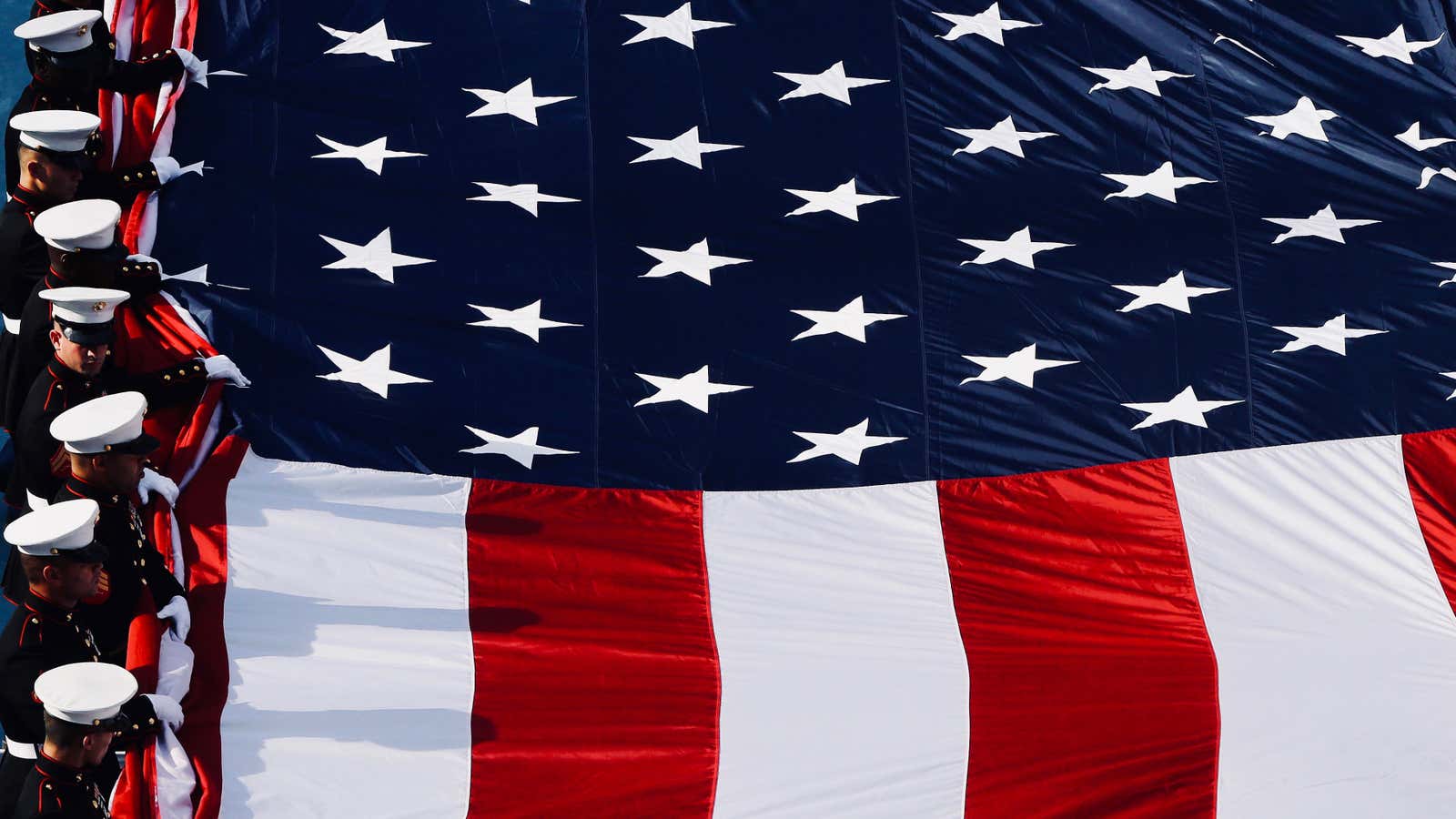It’s time to finally start paying attention to the 2020 US presidential primaries. As Democratic contenders drop out—Kirsten Gillibrand became the latest to announce her withdrawal yesterday—and Republicans are joining the fray (Joe Walsh announced his candidacy over the weekend), the real race is starting to take shape.
Yesterday, the Democratic National Committee announced that 10 candidates appear to have qualified for the September debate—that’s half as many as during the last such events in June and July. Each candidate had to show they have 130,000 unique donors and at least 2% support in four DNC-certified polls to qualify.
Those who made it to the next round are senators Elizabeth Warren, Kamala Harris, Amy Klobuchar, Bernie Sanders, and Cory Booker, as well as South Bend, Indiana mayor Pete Buttigieg, former vice president Joe Biden, former San Antonio, Texas mayor Julian Castro, former Texas representative Beto O’Rourke, and entrepreneur Andrew Yang.
Those who didn’t make it aren’t necessarily bowing out or taking the results lying down. Last week, Hawaii congressional representative Tulsi Gabbard criticized the DNC’s qualifying criteria. Her campaign noted that the DNC doesn’t consider certain polls “certified,” though they’ve been deemed reliable. “Many of the uncertified polls, including those conducted by highly reputable organizations such as The Economist and the Boston Globe, are ranked by Real Clear Politics and FiveThirtyEight as more accurate than some DNC ‘certified’ polls,” the campaign complained. Based on some of these uncertified polls, Gabbard has the requisite 2% of support to make the debate stage.
Although remaining Democratic presidential contenders can still qualify for the October debate—the qualifying criteria is the same as in September—the chances of lesser-known candidates grabbing the spotlight and garnering the needed support despite their absence at next month’s event are not very good. That means voters can start to focus on the winnowed-down group and think seriously about who they might choose… if they haven’t already.
Based on recent polls, though, only a few Democratic candidates are notably intriguing people. The latest poll, published on Aug. 28 and conducted by Quinnipiac University, shows Biden is favored by 32% of Democrats and Democratic-leaning independents, with Warren following at 19% and Sanders at 15%. These results are in line with most other recent poll results, as the New York Times reports.
Yet those numbers do diverge dramatically from figures released earlier in the week by Monmouth University, which seemed to indicate that the former vice president, who is widely viewed as moderate and electable, has been falling in popularity. The Monmouth poll showed Biden losing favor, with only 19% of prospective voters, falling 13 percentage points since June, while Warren and Sanders each drew 20%. Monmouth University poll director Patrick Murray issued a statement on Twitter urging that the “outlier” results be viewed in the context of other polls.
Still, there’s one notable consistency. If polls are to be believed, at this stage, it appears that Biden, Warren, and Sanders are best positioned to win the Democratic primary, with the former vice president most likely to succeed.
Correction: This post has been updated to reflect the fact that Biden fell by 13 percentage points, rather than by 13%, in the Monmouth poll.
